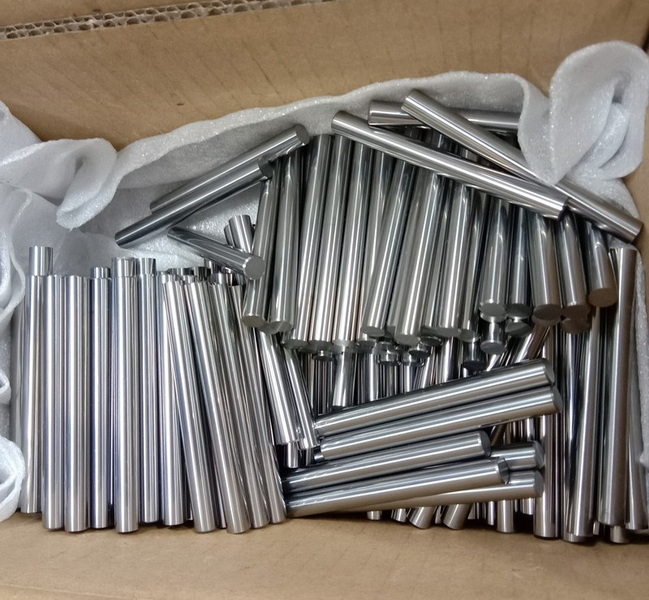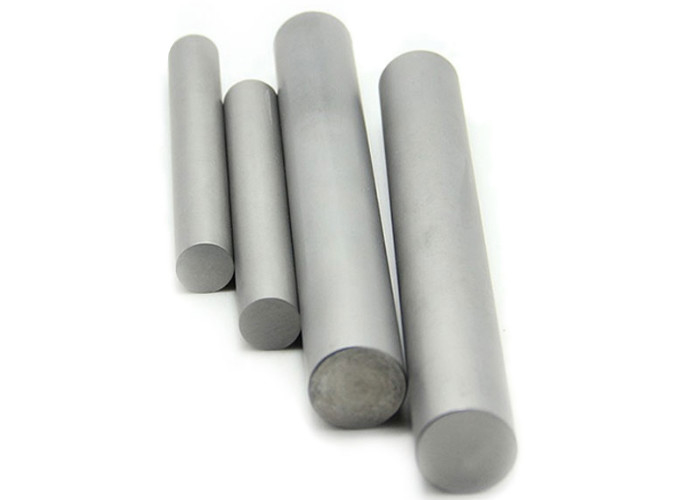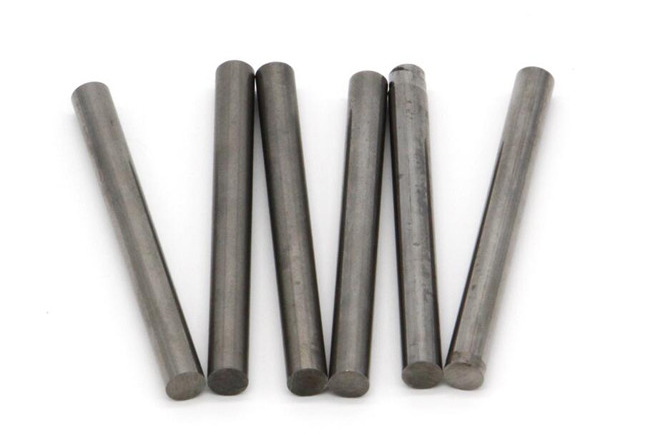Content Menu
● Introduction
● Properties of Tungsten Carbide
● Applications of Tungsten Carbide Round Bars
>> Use in Cutting Tools
>> Applications in Mining and Drilling Industries
>> Role in Manufacturing Precision Instruments
>> Use in Oil and Gas Industry
>> Applications in Woodworking
>> Use in Aerospace Components
>> Role in Medical Devices
● Benefits of Using Tungsten Carbide Round Bars
● Comparison with Other Materials
● Choosing the Right Tungsten Carbide Round Bar
● Conclusion
● Related Questions
>> 1. What are the main advantages of using tungsten carbide round bars in cutting tools?
>> 2. How do carbide round bars perform in high-temperature applications?
>> 3. Are carbide round bars suitable for use in corrosive environments?
>> 4. What factors should be considered when selecting a tungsten carbide round bar?
>> 5. Can carbide round bars be customized for specific applications?
Introduction
Tungsten carbide is a remarkable material known for its exceptional hardness and durability. Among its various forms, carbide round bars stand out as a versatile option in numerous industrial applications. These bars are made from tungsten carbide bar stock, which is a composite material consisting of tungsten and carbon. The unique properties of tungsten carbide make it an ideal choice for manufacturing tools and components that require high wear resistance and strength. In this article, we will explore the applications best suited for carbide round bars, highlighting their benefits and the industries that rely on them.

Properties of Tungsten Carbide
Tungsten carbide possesses several key properties that make it suitable for demanding applications:
- Hardness and Wear Resistance: Tungsten carbide is one of the hardest materials available, ranking close to diamond on the Mohs scale. This hardness translates into excellent wear resistance, making carbide round bars ideal for applications where friction and abrasion are prevalent.
- High Melting Point and Thermal Stability: With a melting point of approximately 2,870 degrees Celsius (5,200 degrees Fahrenheit), tungsten carbide can withstand extreme temperatures without losing its structural integrity. This property is crucial in high-temperature applications, such as metalworking and machining.
- Corrosion Resistance and Durability: Tungsten carbide is resistant to corrosion and chemical wear, allowing it to perform well in harsh environments. This durability ensures a longer lifespan for tools and components made from carbide round bars.
Applications of Tungsten Carbide Round Bars
Carbide round bars are utilized in a wide range of applications across various industries. Here are some of the most common uses:
Use in Cutting Tools
Carbide round bars are extensively used in the manufacturing of cutting tools, such as drills, end mills, and saw blades. The hardness of tungsten carbide allows these tools to maintain sharp edges for longer periods, reducing the frequency of replacements and improving overall productivity. In metalworking, carbide cutting tools are preferred for their ability to cut through tough materials like stainless steel and titanium.
Applications in Mining and Drilling Industries
In the mining and drilling sectors, carbide round bars are essential for producing drill bits and other equipment. The extreme hardness of tungsten carbide enables drill bits to penetrate hard rock formations efficiently. Additionally, carbide round bars are used in the production of mining tools, such as rock hammers and chisels, which require high durability to withstand the rigors of excavation.
Role in Manufacturing Precision Instruments
Precision instruments, such as gauges and measuring tools, often incorporate carbide round bars due to their dimensional stability and wear resistance. The ability to maintain precise measurements over time is critical in industries like aerospace and automotive, where even minor deviations can lead to significant issues. Tungsten carbide's stability under varying temperatures and conditions makes it an ideal choice for these applications.
Use in Oil and Gas Industry
The oil and gas industry relies heavily on carbide round bars for various applications, including drilling and production equipment. Tungsten carbide is used in the manufacturing of drill bits, downhole tools, and valves, where resistance to wear and corrosion is paramount. The harsh environments encountered in oil and gas extraction necessitate materials that can withstand extreme conditions, making carbide round bars a preferred choice.
Applications in Woodworking
In woodworking, carbide round bars are used to create high-performance router bits and saw blades. The sharpness and durability of tungsten carbide allow these tools to cut through hardwoods and other tough materials with ease. Woodworkers appreciate the longevity of carbide tools, as they require less frequent sharpening and replacement compared to traditional steel tools.
Use in Aerospace Components
The aerospace industry demands materials that can withstand high stress and extreme conditions. Carbide round bars are used in the production of various components, including landing gear, turbine blades, and engine parts. The lightweight yet strong nature of tungsten carbide makes it an attractive option for aerospace applications, where performance and safety are critical.
Role in Medical Devices
In the medical field, carbide round bars are utilized in the manufacturing of surgical instruments and dental tools. The hardness and biocompatibility of tungsten carbide make it suitable for precision instruments that require sharp edges and durability. Additionally, carbide tools are used in dental applications for cutting and shaping teeth, ensuring high performance and longevity.
Benefits of Using Tungsten Carbide Round Bars
The advantages of using tungsten carbide round bars in various applications are numerous:
- Enhanced Tool Life: The exceptional hardness of tungsten carbide significantly extends the life of tools and components, reducing downtime and maintenance costs.
- Cost-Effectiveness: While the initial investment in carbide tools may be higher than traditional materials, the long-term savings from reduced replacements and maintenance make them a cost-effective choice.
- Versatility: Carbide round bars can be machined into various shapes and sizes, making them suitable for a wide range of applications across different industries.
- Improved Performance: The superior properties of tungsten carbide contribute to enhanced performance in cutting, drilling, and machining operations, leading to increased productivity.

Comparison with Other Materials
When comparing tungsten carbide to other materials, several key differences emerge:
- Tungsten Carbide vs. High-Speed Steel: While high-speed steel (HSS) is commonly used for cutting tools, tungsten carbide offers significantly greater hardness and wear resistance. This makes carbide tools more suitable for high-performance applications where durability is essential.
- Advantages Over Ceramic and Other Hard Materials: Although ceramics are also hard materials, they are more brittle than tungsten carbide. This brittleness can lead to chipping and breakage under stress. Tungsten carbide, on the other hand, combines hardness with toughness, making it a more reliable choice for demanding applications.
Choosing the Right Tungsten Carbide Round Bar
Selecting the appropriate tungsten carbide round bar for a specific application involves several considerations:
- Grade: Different grades of tungsten carbide are available, each with unique properties. It is essential to choose a grade that matches the requirements of the intended application, such as wear resistance or toughness.
- Size: The diameter and length of the carbide round bar should be selected based on the specific needs of the project. Custom sizes are often available to meet unique requirements.
- Application: Understanding the application is crucial in determining the right type of carbide round bar. Factors such as the material being processed, the operating environment, and the required precision should all be taken into account.
- Supplier Quality: It is vital to source tungsten carbide round bars from reputable suppliers who provide high-quality materials and certifications. This ensures that the bars meet industry standards and perform as expected.
Conclusion
Tungsten carbide round bars are invaluable in various industries due to their exceptional properties and versatility. From cutting tools to precision instruments, the applications of carbide round bars are vast and varied. Their hardness, wear resistance, and durability make them a preferred choice for manufacturers seeking reliable and high-performance materials. As industries continue to evolve, the demand for tungsten carbide round bars will likely grow, solidifying their place as a cornerstone in modern manufacturing.

Related Questions
1. What are the main advantages of using tungsten carbide round bars in cutting tools?
Tungsten carbide round bars offer enhanced hardness and wear resistance, leading to longer tool life and improved cutting performance. They maintain sharp edges longer than traditional materials, reducing the need for frequent replacements.
2. How do carbide round bars perform in high-temperature applications?
Carbide round bars can withstand extreme temperatures due to their high melting point and thermal stability. This makes them suitable for applications in metalworking and machining where heat generation is significant.
3. Are carbide round bars suitable for use in corrosive environments?
Yes, tungsten carbide is resistant to corrosion and chemical wear, making carbide round bars ideal for use in harsh environments, such as the oil and gas industry.
4. What factors should be considered when selecting a tungsten carbide round bar?
When choosing a tungsten carbide round bar, consider the grade, size, application requirements, and the quality of the supplier to ensure optimal performance.
5. Can carbide round bars be customized for specific applications?
Yes, carbide round bars can be machined into various shapes and sizes, allowing for customization to meet the specific needs of different applications.
















